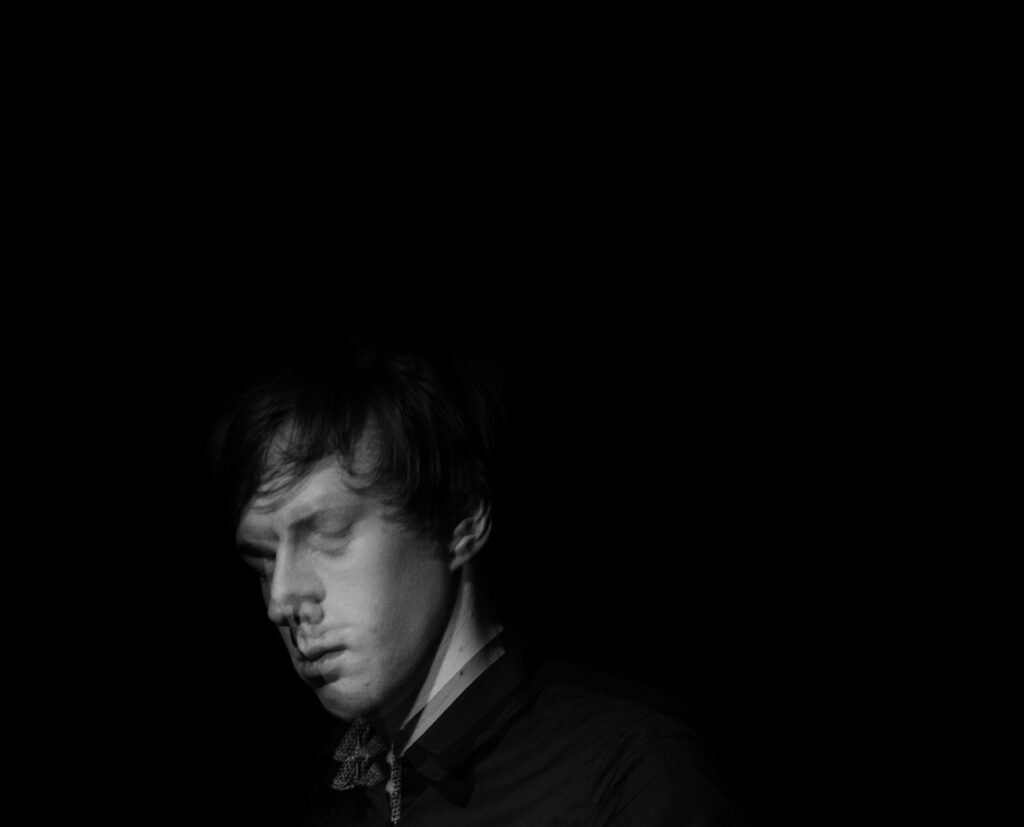Schizoaffective Disorder Symptoms
A combination of symptoms of schizophrenia and mood disorders, such as bipolar disorder or major depressive disorder, characterizes schizoaffective disorder. The symptoms can vary in intensity and duration, and they can be categorized into three main groups:
- Psychotic symptoms: These symptoms are similar to those experienced by individuals with schizophrenia and may include hallucinations (perceiving things that are not present), delusions (holding false beliefs), disorganized thinking, and difficulty distinguishing between reality and fantasy.
- Mood symptoms: Individuals with schizoaffective disorder also experience symptoms of a mood disorder, such as mania or depression. During manic episodes, they may feel euphoric, have racing thoughts, engage in impulsive behavior, and require less sleep. In depressive episodes, they may feel sad, lose interest in activities, experience changes in appetite and sleep patterns, and have difficulty concentrating.
- Disorganized and catatonic symptoms: These symptoms involve disorganized speech and behavior, as well as catatonic behavior, which can include decreased movement, rigid posture, repetitive movements, and resistance to instructions.
The specific symptoms and their severity can vary greatly among individuals with this condition. The diagnosis and management of this condition require careful evaluation and collaboration between mental health professionals and the individual affected.
What Is Schizoaffective Disorder?
This condition is a chronic mental health condition that combines the symptoms of schizophrenia and mood disorders. A complex interplay of psychotic symptoms, such as hallucinations and delusions, and mood symptoms, such as mania or depression, characterizes it. The exact cause of schizoaffective disorder is not fully understood, but it is believed to involve a combination of genetic, environmental, and neurochemical factors.
Individuals with this condition often experience disruptions in their thoughts, perceptions, emotions, and behavior. The disorder typically manifests in late adolescence or early adulthood and can significantly impact a person’s daily functioning, relationships, and overall quality of life.

Skip To:
Learn More:
- Schizoid Personality Disorder Symptoms, Causes, and Treatment
- Is Schizophrenia Hereditary? Genetics & Other Causes
- Schizophrenia Treatments, Therapies, Medications, Symptoms of Schizophrenia & Risk Factors
- What is Disorganized Schizophrenia or Hebephrenia? Signs & Coping
- Co-occurring disorders, Diagnosis, Risk Factors, Mental Health, Substance Abuse & Dual Diagnosis Rehab Washington
- We Level Up WA Mental Health Center
Diagnosing this condition requires careful evaluation by a mental health professional, as it can be challenging to differentiate from other mental health conditions with overlapping symptoms. Treatment typically involves a combination of medication, psychotherapy, and support services tailored to address psychotic and mood symptoms.
Living with this condition can be challenging, but individuals can lead fulfilling lives with proper diagnosis, treatment, and support. Ongoing management and support are crucial to help individuals effectively manage symptoms, enhance their overall well-being, and improve their long-term outcomes.
Schizophrenia Fact Sheet
Schizophrenia Overview
A condition that impairs a person’s capacity for clear thought, feeling, and behavior.
Although the precise origin of schizophrenia is unknown, it is thought that a mix of genetics, environment, and altered brain chemistry and structure may be at play.
Schizophrenia is characterized by disorganized speech or behavior, depressed participation in daily tasks, and ideas or experiences that appear disconnected from reality. Memory loss and attention problems could also be present.
Treatment is typically ongoing and consists of prescription drugs, psychotherapy, and well-coordinated specialty care services.
Schizophrenia Symptoms
Schizophrenia is characterized by disorganized speech or behavior, depressed participation in daily tasks, and ideas or experiences that appear disconnected from reality. Memory loss and attention problems could also be present.
Schizophrenia Treatments
Treatment is typically ongoing and consists of prescription drugs, psychotherapy, and well-coordinated specialty care services.
End the Emotional Pain. Get Your Life Back.
Feeling Depressed, Anxious or Struggling with Mental Health Illness? Get Safe Comfortable Mental Health Dual Diagnosis High-Quality Therapy From Counselors That Care. Begin Your Recovery Now.
Hotline: (509) 348-4077

Schizophrenia Statistics
Disturbances in thought, perception, emotional responsiveness, and social interactions characterize a mental disorder called schizophrenia. Although each person’s experience with schizophrenia is unique, the condition is typically chronic and can be severe and incapacitating.
4.9%
With the risk being highest in the early stages of the illness, an estimated 4.9% of people with schizophrenia commit suicide, a rate significantly higher than that of the general population.
Source: National Insitute Of Mental Health
24 Million
Around 24 million globally, or 1 in 300 persons (0.32%), suffer from schizophrenia. Adults at this rate make up 1 in 222 individuals (0.45%). It does not occur as frequently as many other mental illnesses.
Source: World Health Organization
50%
Most people with schizophrenia do not currently have access to mental health services. An estimated 50% of patients in psychiatric hospitals have a diagnosis of schizophrenia.
Source: World Health Organization
Get Help. Get Better. Get Your Life Back.
Searching for Accredited Dual Diagnosis Mental Health Centers Near You?
Even if therapy failed previously, or are in the middle of a difficult crisis, we stand ready to support you. Our trusted behavioral health specialists will not give up on you. When you feel ready or just want someone to speak to about counseling alternatives to change your life call us. Even if we cannot assist you, we will lead you to wherever you can get support. There is no obligation. Call our hotline today.
FREE 24/7 Dual Diagnosis Mental Health Services Hotline
What Causes The Schizoaffective Disorder?
The exact cause of schizoaffective disorder is unknown, but researchers believe that a combination of genetic, environmental, and neurochemical factors plays a role in its development. Here are some factors that are believed to contribute to the development of this condition:
- Genetics: Like many mental health disorders, schizoaffective disorder tends to run in families. A close relative with schizophrenia or a mood disorder increases the risk of developing this condition. However, it is important to note that genetics alone do not determine the development of the disorder, as other factors also come into play.
- Brain chemistry and structure: Imbalances in certain brain chemicals, such as dopamine and serotonin, have been associated with schizophrenia and mood disorders. These imbalances may contribute to the development of schizoaffective disorder. Additionally, abnormalities in brain structure or functioning, such as changes in the size or connectivity of certain brain regions, may play a role.
- Environmental factors: Certain environmental factors can increase the risk of developing schizoaffective disorder. These factors may include exposure to toxins, prenatal complications or infections, stressful life events, trauma, and substance abuse. However, it’s important to note that not everyone exposed to these factors will develop the disorder, indicating the complex interaction between genetics and the environment.
- Hormonal and developmental factors: Hormonal changes during adolescence and early adulthood, when schizoaffective disorder often emerges, may contribute to the development of the disorder. Additionally, disruptions in early brain development, such as during fetal or early childhood, may play a role.
These factors are not definitive causes of schizoaffective disorder. Rather, they are potential factors that increase the risk of developing the disorder. Further research is needed to understand the complex interplay between these factors and the development of this condition.
Schizoaffective Disorder Bipolar Type
Schizoaffective disorder bipolar type is a specific subtype of schizoaffective disorder. A combination of symptoms of schizophrenia and bipolar disorder characterizes it. Individuals with this subtype experience psychotic symptoms, such as hallucinations and delusions, and mood symptoms, including manic and depressive episodes.
During manic episodes, individuals may feel extremely euphoric or irritable, have an abundance of energy, engage in impulsive behaviors, experience racing thoughts, and have difficulty sleeping. On the other hand, during depressive episodes, individuals may feel sad, lose interest in activities, experience changes in appetite and sleep patterns, have difficulty concentrating, and may even have thoughts of self-harm or suicide.
The presence of both psychotic and mood symptoms distinguishes schizoaffective disorder bipolar type from other subtypes of schizoaffective disorder. Diagnosis can be challenging because it shares symptoms with other mental health conditions such as bipolar disorder, schizophrenia, or major depressive disorder.
Difference Between Schizoaffective Vs Schizophrenia
Schizoaffective disorder and schizophrenia are two distinct but related mental health conditions. While they share some similarities in terms of symptoms, there are key differences between the two:
- Symptom Duration: In schizophrenia, the presence of psychotic symptoms, such as hallucinations, delusions, and disorganized thinking, is the primary characteristic. These symptoms persist for a significant period of time, typically at least six months. In contrast, schizoaffective disorder combines psychotic symptoms with mood symptoms, such as manic or depressive episodes. These mood symptoms must be present for a substantial portion of the illness and are a distinguishing feature of schizoaffective disorder.
- Mood Symptoms: While mood symptoms can be present in schizoaffective disorder and schizophrenia, they play a more prominent role in schizoaffective disorder. Individuals with schizoaffective disorder experience distinct periods of mood disturbance, such as manic or depressive episodes and psychotic symptoms. In schizophrenia, if present, mood symptoms are often less pronounced or transient.
- The course of Illness: Schizophrenia typically follows a chronic and continuous course, with periods of relapse and remission. In contrast, the schizoaffective disorder often involves a fluctuating course, where individuals experience mood symptoms alongside periods of psychosis or relative stability.
- Treatment Approach: While both conditions may benefit from similar treatment approaches, such as antipsychotic medication and psychotherapy, individuals with schizoaffective disorder may require additional emphasis on managing mood symptoms. The treatment approach for schizoaffective disorder often involves a combination of mood stabilizers, antipsychotics, and psychotherapy targeted at both the psychotic and mood symptoms.
Accurate diagnosis is crucial for effective treatment and management of these conditions. Mental health professionals carefully evaluate a person’s symptoms, duration, and pattern of illness to differentiate between schizoaffective disorder and schizophrenia.
First-class Facilities & Amenities
World-class High-Quality Mental Health Services & Behaviroal Health Substance Abuse Treatment
Rehab Centers TourRenowned Mental Health Centers. Serene Private Facilities. Inpatient Rehab Programs Vary.
Mental Health Helpline: (509) 348-4077Proven recovery success experience, backed by a Team w/ History of:
15+
Years of Unified Experience
100s
5-Star Reviews Across Our Centers
10K
Recovery Success Stories Across Our Network
- Low Patient to Therapist Ratio
- Comprehensive Dual-Diagnosis Treatment
- Complimentary Family & Alumni Programs
- Coaching, Recovery & Development Events
- Comfortable Onsite Medical Detox Center
Schizoaffective Disorder Treatments
The treatment of schizoaffective disorder typically involves a combination of medication, psychotherapy, and support services. The goal of treatment is to manage symptoms, improve overall functioning, reduce relapse rates, and enhance the individual’s quality of life. Treatment approaches may vary depending on the specific symptoms and needs of the individual. Here are some common treatments for this condition:
- Medication: Antipsychotic medications are often prescribed to manage the psychotic symptoms of schizoaffective disorder. These medications help reduce hallucinations, delusions, and disorganized thinking. In cases where mood symptoms are prominent, mood stabilizers or antidepressants may also be prescribed. Finding the right medication and dosage may require some trial and error, as different individuals respond differently to medications.
- Psychotherapy: Psychotherapy, such as cognitive-behavioral therapy (CBT), can be beneficial in helping individuals with schizoaffective disorder manage their symptoms and improve their coping skills. CBT can help individuals identify and challenge distorted thoughts, develop problem-solving skills, and manage stress. Other forms of therapy, such as family or group therapy, may also help provide support and improve communication within relationships.

- Supportive Services: Supportive services play a crucial role in treating this condition. These may include case management, vocational support, and psychosocial rehabilitation programs. These services can assist individuals in accessing resources, managing daily tasks, improving social and occupational skills, and enhancing overall functioning.
- Self-care and Lifestyle Changes: Engaging in self-care activities, such as maintaining a regular sleep schedule, engaging in physical exercise, practicing relaxation techniques, and managing stress, can complement the treatment of schizoaffective disorder. Having a support system of friends, family, or support groups is also important to provide emotional support and understanding.
- Ongoing Treatment and Monitoring: Schizoaffective disorder is a chronic condition that requires ongoing treatment and monitoring. Regular check-ins with mental health professionals, medication management, and adjustments to treatment as needed are important to ensure symptom management and prevent relapses.
Individuals with this condition must work closely with a mental health professional to develop an individualized treatment plan that addresses their needs. Treatment may involve a combination of these approaches to achieve the best outcomes and improve the individual’s overall well-being.
Schizoaffective Disorder Medications
Medication is a key component in the treatment of schizoaffective disorder. The specific medications prescribed will depend on the individual’s symptoms and needs. Here are some common types of medications used in the treatment of schizoaffective disorder:
- Antipsychotic Medications: These medications are the primary treatment for managing the psychotic symptoms of schizoaffective disorder, such as hallucinations and delusions. They work by blocking dopamine receptors in the brain. There are two main types of antipsychotics: typical (first-generation) and atypical (second-generation). Typical antipsychotics include haloperidol and chlorpromazine, while atypical antipsychotics include risperidone, olanzapine, quetiapine, aripiprazole, and clozapine. Atypical antipsychotics are generally preferred due to their lower risk of side effects.
- Mood Stabilizers: Mood stabilizers, such as lithium and valproate, may be prescribed to help manage the mood symptoms associated with schizoaffective disorder, particularly during manic or depressive episodes. These medications help stabilize mood and reduce the frequency and intensity of mood swings.
- Antidepressant Medications: Antidepressants, such as selective serotonin reuptake inhibitors (SSRIs) or serotonin-norepinephrine reuptake inhibitors (SNRIs), may be prescribed if depressive symptoms are predominant. These medications help alleviate symptoms of depression, such as low mood, loss of interest, and sleep disturbances.
Medication choices should be made in consultation with a qualified psychiatrist or healthcare professional. The specific medication, dosage, and treatment plan will be determined based on an individual’s symptoms, medical history, and potential side effects. Regular monitoring and follow-up with a healthcare provider are essential to ensure medication effectiveness and manage any possible side effects.
Each person may respond differently to medications, so finding the right medication and dosage may require trial and error. It’s crucial to adhere to the prescribed medication regimen and communicate openly with healthcare providers about any concerns or changes in symptoms.
World-class, Accredited, 5-Star Reviewed, Effective Mental Health Dual Diagnosis Programs. Complete Integrated Inpatient Rehab with Free Post Discharge Therapy Planning.
Hotline: (509) 348-4077End the Emotional Pain Rollercoaster. Gain Stability & Happiness Through Recovery Treatment. Start Mental Health Counseling Today. Get Free No-obligation Guidance by Behaviroal Health Specialists Who Understand Mental Health Recovery.
Popular Schizoaffective Disorder Symptoms FAQs
-
Does Schizoaffective Disorder Get Worse With Age?
The course of schizoaffective disorder can vary among individuals. While some individuals may experience worsening symptoms as they age, others may see their symptoms stabilize or even improve. It is important to note that proper treatment and management, including medication and therapy, can greatly impact the disorder’s progression and help individuals maintain stability.
-
Is Someone With Schizoaffective Disorder Dangerous?
Having schizoaffective disorder does not inherently make someone dangerous. Like any other mental health condition, individuals with schizoaffective disorder should not be stigmatized or feared. It is essential to remember that most individuals with schizoaffective disorder are not violent. However, it is important for individuals with schizoaffective disorder, as with any mental health condition, to have access to appropriate treatment, support, and resources to manage their symptoms and promote well-being. With proper treatment and support, individuals with schizoaffective disorder can lead fulfilling and productive lives.
8 Steps & Tips for Maintaining Your Mental Wellbeing Informative Video
Video Script
We at We Level Up WA are committed to providing personalized mental health services based on extensive research and customized to address the specific needs of each individual. Our team of dedicated professionals develops personalized therapy programs that target individual challenges and goals. With our modern facilities and compassionate approach, we empower our clients to participate in their journey to recovery actively. By choosing our center, you will have access to cutting-edge treatments, supportive care, and the opportunity for a brighter future marked by healing and personal growth.
Experience Transformative Recovery at the We Level Up Treatment Center.
See our authentic success stories. Get inspired.
Get the help you deserve.



Start a New Life
Begin with a free call to a behavioral health treatment advisor. Learn more about our dual-diagnosis programs. The We Level Up treatment center network delivers recovery programs that vary by each treatment facility. Call to learn more.
- Personalized Care
- Caring Accountable Staff
- World-class Amenities
- Licensed & Accredited
- Renowned w/ 5-Star Reviews
We’ll Call You
Search We Level Up WA Mental Health Topics & Resources
Sources
- National Institute of Mental Health (NIMH) – Schizophrenia Information: https://www.nimh.nih.gov/health/topics/schizophrenia/index.shtml
- Centers for Disease Control and Prevention (CDC) – Schizophrenia: https://www.cdc.gov/mentalhealth/learn/index.htm
- Substance Abuse and Mental Health Services Administration (SAMHSA) – Schizophrenia and Other Psychotic Disorders: https://www.samhsa.gov/find-help/disorders/schizophrenia
- National Alliance on Mental Illness (NAMI) – Schizophrenia: https://www.nami.org/About-Mental-Illness/Mental-Health-Conditions/Schizophrenia
- MedlinePlus – Schizophrenia: https://medlineplus.gov/schizophrenia.html
- National Library of Medicine – Schizophrenia: https://www.ncbi.nlm.nih.gov/books/NBK519698/
- National Institutes of Health (NIH) – Schizophrenia: https://www.nih.gov/health-information/schizophrenia
- U.S. Department of Health and Human Services – MentalHealth.gov: https://www.mentalhealth.gov/
- Office on Women’s Health – Schizophrenia Fact Sheet: https://www.womenshealth.gov/mental-health/mental-health-conditions/schizophrenia
- National Institute on Drug Abuse (NIDA) – Comorbidity: Substance Use Disorders and Other Mental Illnesses: https://www.drugabuse.gov/publications/research-reports/common-comorbidities-substance-use-disorders/mental-illnesses